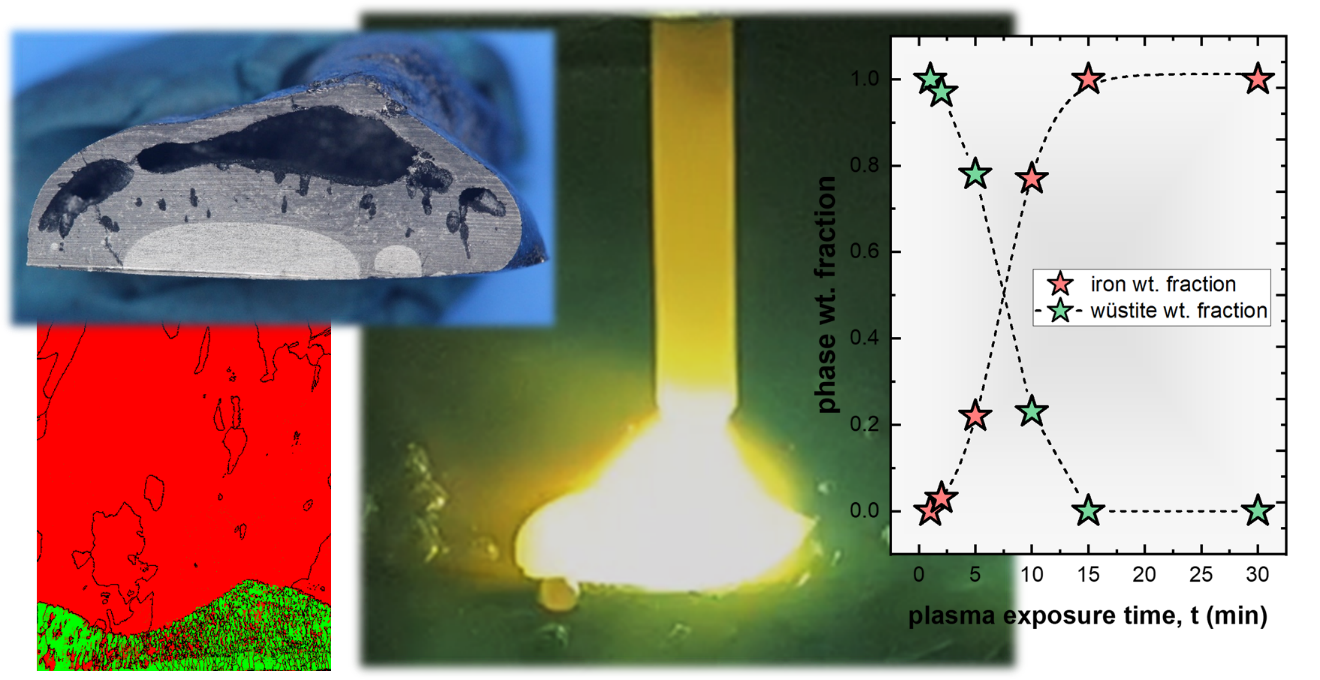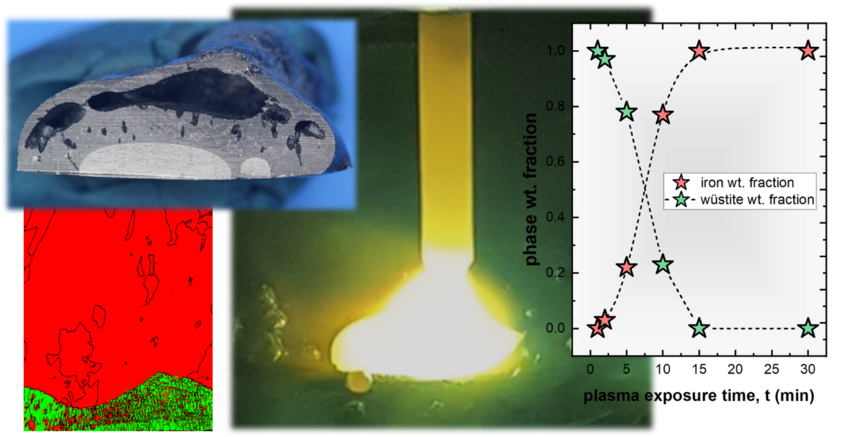RWTH University Partner Group
Sustainable Material Science and Technology
Our group investigates and develops novel strategies for the sustainable production of metallic materials. We aim at a holistic approach to reduce the environmental impact, by integrating aspects of synthesis science and technology, such as energy consumption and emission of climate gases, into the material design, i.e. the use of alloying elements, tolerance for impurities and optimisation of properties for lightweight constructions.
Currently the focus lies on the reduction of iron ores with hydrogen as the key pathway to reduce the carbon emission of steel production, being one of the major global contributors. Two synthesis routes are being investigated: the direct reduction in the solid state as a process already on a higher technology readiness level, and the hydrogen plasma reduction process, which involves melting and simultaneously reducing ores in the electrical arc furnace. The latter offers the greatest ecological and economical potential, but also requires addressing a substantially greater number of scientific and technological questions and challenges. On both routes we investigate the fundamental aspects of processing parameters such as atmospheric conditions and chemical composition of the ores, and their link to phase and microstructure evolutions governing the reduction kinetics. For that purpose, we develop and deploy representative experimental setups and modelling approaches in close cooperation with inhouse groups. The transferability to an industrial scale of the derived results is discussed with external partners. Technology development and its consequences for material design aspects, such as for example the development of high stiffness and self-healing materials, are integrated into the activities of the academic and research department for metallic composite materials at the RWTH University.

Hydrogen Metallurgy by direct reduction and plasma processes: Fundamental interactions between process parameters, microstructure evolution and reduction kinetics
